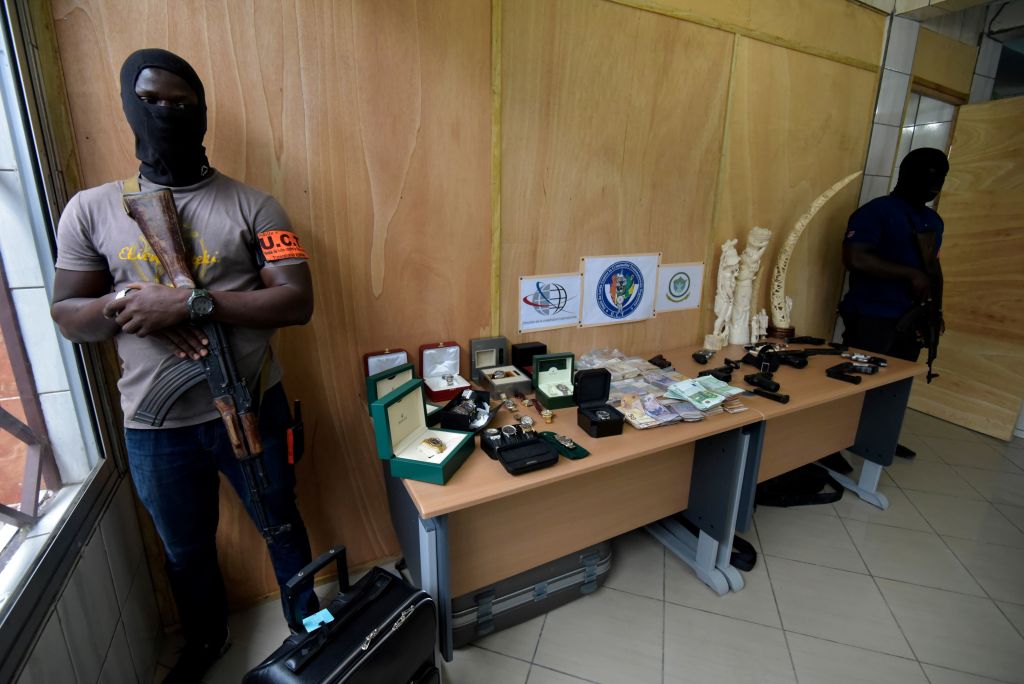ADF STAFF
Just 2,700 kilometers separate northeastern Brazil from the western coast of Africa. Traffickers use this proximity to move cocaine, hashish and heroin through West African ports on to destinations all over the world.
Drugs are just part of the picture, however. Africa serves as a destination and a transit point for a host of crimes, from arms smuggling and human trafficking to illegal logging and wildlife crime.
Africa’s location makes it an ideal conduit for illicit material moving from Asia or South America to Europe and North America, according to analysts with ENACT, Enhancing Africa’s Response to Transnational Organised Crime, a project run by the Institute for Security Studies (ISS) in partnership with Interpol and the Global Initiative Against Transnational Organized Crime (GI-TOC).
Porous borders, poorly defended coastlines and corrupt public officials hamper international efforts to disrupt transnational crime, according to analysts.
“Africa is firmly placed in the global illicit supply chain,” Rumbi Matamba, an analyst with the East and Southern Africa Observatory of the GI-TOC, said during a recent panel discussion about transnational crime on the continent sponsored by ENACT.
Coups, such as those in Burkina Faso, Guinea, Mali and Niger, make transnational crime worse in Africa, according to Matthew Wilner-Reid, coordinator for the Global Illicit Flow project at the European Union.
“The coups we’ve seen in Sahel and the Horn of Africa are creating instability, which transnational crime thrives on,” Wilner-Reid told the ENACT conference.
Transnational crime then creates more instability in a country, creating a feedback loop that can underpin terrorism.
“There is a clear link between terrorism and organized crime,” Wilner-Reid said.
Across Africa, only three countries — Cabo Verde, Mauritius and Rwanda — have proved themselves capable of achieving the mix of low criminality and high resistance to organized crime, Matamba said.
The GI-TOC’s 2023 Global Crime Index reveals that 48 African countries lack the political and legal systems needed to combat organized crime effectively, Matamba said. The Global Crime Index calls a country’s ability to defend itself against transnational crime “resilience.”
Three countries — Nigeria, Senegal and South Africa — have high crime levels but also high levels of resilience to combat that crime, Matamba noted.
Of all the activities transnational criminal gangs engage in on the continent, the most pervasive is human trafficking, with Libya and Eritrea ranking the highest. That is followed by financial crimes. Cybercrime remains the smallest category of transnational crime in Africa, although it is growing.
Transnational organized criminal groups are deeply involved in environmental crime in Africa. In Central Africa, that means illegal logging, which is estimated to be a $150-billion-a-year business. Nearly 90% of the legal logging concessions granted in the Democratic Republic of the Congo (DRC) benefited from illegal logging done on their peripheries, according to Oluwole Ojewale, the ENACT project’s regional organized crime observatory coordinator for Central Africa at ISS.
“Armed terrorists are getting into illegal logging to finance their operations,” Ojewale told the conference. In many cases, illegal loggers exploit the people who live in the forest, who see the trees as a natural way to escape poverty.
Logs are shipped from the DRC through Uganda or Cameroon and Nigeria, where corrupt officials send them on their way to Asia, Ojewale said.
Corrupt public officials, which the Organized Crime Index labels “state-embedded actors,” are a weak link in Africa’s fight against transnational organized crime. According to the index, the majority of African countries ranked high for public corruption. The lowest levels of public corruption were reported in Botswana, Cabo Verde, and São Tomé and Príncipe.
Botswana and Cabo Verde also rank high among African democracies, which tend to prove themselves more resistant to the ill effects of transnational crime because the strength of their institutions makes it difficult for criminals to do business there, according to ENACT analysts.
“Corruption is a major factor in weakening the capability of institutions to fight organized crime,” Matamba said.

